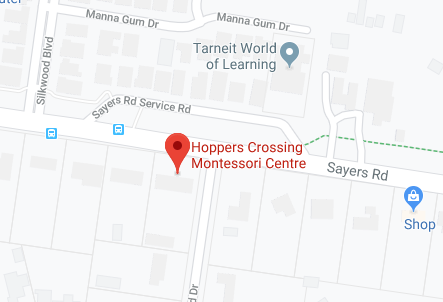Sustainability education is a vital function of our outdoor curriculum design at HCMC, as this is incorporated through our daily practices within the service setting, by providing natural resources and creating natural environments for children’s participation in sustainability learning.
Sustainability is environmental education with strategies for advocating ecological living for children within our program on incorporating ideas for sustainable practices within the governance.
The Importance of Environmental Education for Young Learners
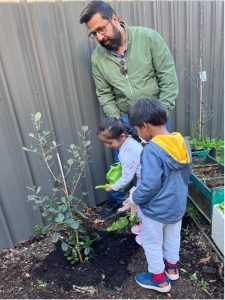 Educating children about the environment and how natural systems work provides young learners with the knowledge and skills which is essential at this age.
Educating children about the environment and how natural systems work provides young learners with the knowledge and skills which is essential at this age.
The subject is everything that mankind requires for survival and well-being establishing a connection between our natural environments, including elements of composting our waste, worm farm, rainwater tanks, our community garden, planting trees, and delivering a natural environment that productively engages children.
Yet there are countless approaches where educators have included sustainable development.
The National Quality Standards voices that services take an active role in caring for the environment and contribute to a sustainable future (standard 3.3).
Alone this is accomplished by reducing our waste, energy, and water usage as we ensure sustainable practices are embedded within our service operations.
Sustainable Practices Within the Service Setting
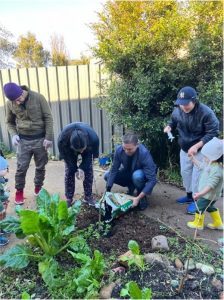 The strategies reflect how sustainable education and sustainable practices are included in our service setting and within the curriculum to develop an awareness of global and local environmental issues.
The strategies reflect how sustainable education and sustainable practices are included in our service setting and within the curriculum to develop an awareness of global and local environmental issues.
The idea is to equip children with the knowledge and skills they require to be ecologically responsible as they participate and engage in experiences of nature walks, looking after our community garden and the natural resources within our environment.
This will also aid children’s knowledge and understanding about the local wildlife, native plant life, habitats, our carbon footprint, and reducing our waste caring for our environment.
Our environment is a critical element for us at HCMC, impacting all seven areas of the National Quality Standard and contributing to each of the five learning outcomes of the Early Years Learning Framework.
At HCMC we inculcate sustainable practices through the use of our indoor and outdoor environments through built and natural settings.
Nurturing Environmental Understanding in Young Learners
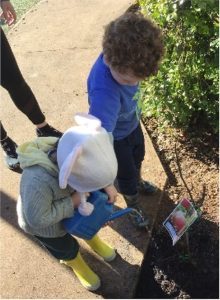 As educators, we are constantly looking for new ways which help us, and the children connect with the land and community.
As educators, we are constantly looking for new ways which help us, and the children connect with the land and community.
Planting a tree is a long-lasting investment. Besides adding beauty to our landscape, a tree will help our outdoor environment by taking up carbon dioxide, and greenhouse gasses which are a mammoth cause of climate change.
The tree will help shed shade on a hot summer day and provide food, shelter, and nesting habitats for our local wildlife.
Nurturing Environmental Understanding in Young Learners
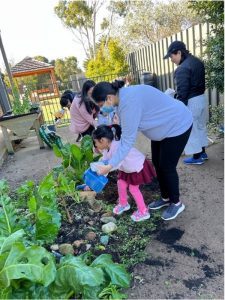 It is important for young children to learn about diversity and support them to build their knowledge as they engage and interact with their surroundings.
It is important for young children to learn about diversity and support them to build their knowledge as they engage and interact with their surroundings.
The learning environments are designed which source natural materials, settings, and experiences connecting children back to the Country and nature.
These environments benefit children by challenging them to explore something that could rather be, than what it is, as we explore the natural environment by seeing, listening, touching, and smelling.
By growing our own vegetable and herb garden for learning, having a tree planting day, incorporating local Indigenous plants, and fruiting plants, which teaches children about the food web, which is different for the Aboriginal people, and growing something as children develop their connection to Country and place.
This idea of learning on and from the Country is vital, as this practice demonstrates coming together and a sign of respect recognising Indigenous worldviews.
Teaching Diversity and Cultural Understanding
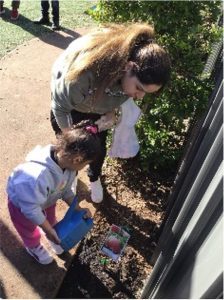 By providing experiences and opportunities, where children are exposed to diverse concepts through nature as they begin to notice the transformation in their environment.
By providing experiences and opportunities, where children are exposed to diverse concepts through nature as they begin to notice the transformation in their environment.
The outdoor ecosystem provides numerous learning opportunities as children notice the changes outside with the land and the sky, thro ugh the movement of time and the changes through seasons.
Being, Belonging and Becoming, the Early Years Learning Framework, learning outcome 2: children are connected with and contribute to their world.
Focuses on relationships with families, community, and nature building our children’s understanding of social responsibility and respect for diversity.
Teaching Diversity and Cultural Understanding
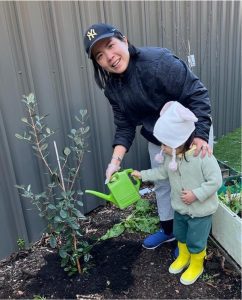 As humans we begin to understand and build our knowledge through our cultural lens, connecting us with the world and the wider community.
As humans we begin to understand and build our knowledge through our cultural lens, connecting us with the world and the wider community.
As we carry our own cultural understandings, which impact the way we interact and learn.
Bronfenbrenner’s Ecological Systems theory explains, the personality and behaviour of children being influenced by the relationships between individuals, the community, and their environments.
The model supports Indigenous views of a child’s development as a complex system of relationships influenced by immediate settings of family, culture, laws, values, and customs.
Bronfenbrenner’s Ecological Systems model provides educators with a theoretical framework that supports action to enhance the teachings of Indigenous cultures and come together as a community.
Empowering Future Leaders in the Fight Against Climate Change
Today’s children will become tomorrow’s leaders in our encounter against climate change, so this is vital for our children to understand the concept of sustainable living from early life, by fostering and encouraging children’s understanding and respect for our natural environment by teaching them about diversity and variations of nature, not only will this teach children to care for and learn about plants and trees in their local area but also develop skills to respect their environment and community.
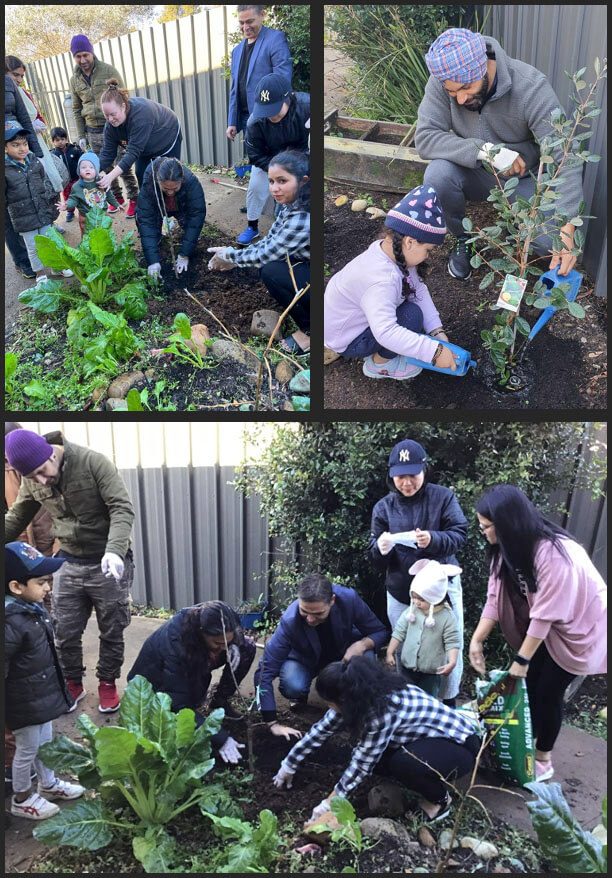
Blog is written by DELNAZ IRANI

Visit your Hoppers Crossing Montessori Centre today!
Contact us at (03) 8742 2349 or book a tour.
Visit us at 483 Sayers Road in Hoppers Crossing.
